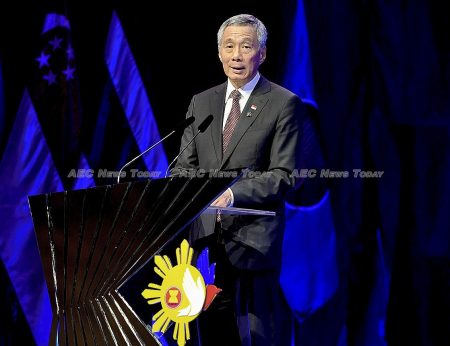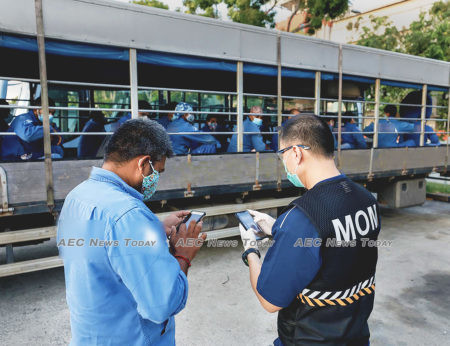The Singapore government won international acclaim for its deft handling of the COVID-19 crisis in the early months. The country was praised for its ability to activate an efficient contact tracing system to track down possible cases and implement strict quarantine measures to reduce community infection.

The initial low rate of infection, coupled with the quick closure of its borders to COVID-19 hotspots around the world, prompted Singaporean Prime Minister, Lee Hsien Loong to declare that the virus was under control in Singapore. He also elevated Singapore as a model for other nations to follow.
The government introduced ‘TraceTogether’, a mobile phone app developed by the Government Technology Agency (GovTech) to enhance contract tracing efforts.
It used what the government dubbed the ‘bluetrace protocol’ — technology leveraging the Bluetooth feature on mobile phones to track proximity between users and record extended face-to-face encounters.
Non-intrusive
GovTech claims that the app is non-intrusive and uses an encrypted ‘digital handshake’ between devices. The data is stored on users’ mobile devices until contact tracing is activated. Users will be asked to grant permission for the data to be sent to the Ministry of Health (MOH) for contact tracing.
By using Bluetooth technology, TraceTogether claims to have side-stepped the data collection issues associated with contact tracing inventions that governments in Israel, South Korea and Hong Kong are facing. Other technologies use global positioning system (GPS) data to pin-point the location of individuals who flout quarantine rules or are near quarantined locations.
There were over 620,000 downloads of TraceTogether within the first three days of its launch. This prompted the government to release the source codes free for use around the world. But attention on the application took a backseat to the resurgence of COVID-19 cases in Singapore in late March.
In early April the government imposed a ‘circuit breaker’, putting the country in a lockdown that severely restricts personal movement and non-essential services.
TraceTogether app of little help
Singapore’s early success was far from consummate. And the contribution of TraceTogether in efforts to contain the virus was limited, something that even GovTech admitted. But this did not stop other countries from considering or adopting a similar solution.
Australia and New Zealand, which both implemented an early lockdown and saw improvements in infection figures, are now beginning a gradual exit strategy.
Australia released its own mobile app in late April, and New Zealand followed with its own ‘NZ COVID Tracer app’., last month.
Where these countries differ from Singapore is the general unease among their citizens about the privacy and surveillance issues associated with such applications, with Singaporeans appearing more inclined to support a government-enforced nation-wide adoption drive.
Reviews of TraceTogether by application developers are mixed, however. Some praise its simplicity and privacy protection, while others raise concerns about how some features could potentially allow backdoor access to user data. Bluetooth technology, if not used properly, can expose user data to security breaches.
Little clarity, repeated assurances
There is little clarity about whether such data can be sent to the government for broader surveillance use, aside from repeated assurances that the application does not collect location data.
`GovTech has also failed to clarify how future updates of the application might prevent the risk of political abuse through tracking targeted individuals.
The effectiveness of the application is also debatable. It does not assist users trying to insulate themselves from the virus. South Korea’s ‘Corona 100m’ application prompts users when they wander into a COVID-19 cluster, allowing them to take necessary precautions.
TraceTogether deals with what happens after the fact — the process of contact tracing by the government after a confirmed infection. But overdependence on the application might lull users into a false sense of security, allowing them to feel safe to interact freely and unknowingly exacerbate the rate of infection.

The Singapore government continues to push for the adoption of the app, but combatting the pandemic still hinges more on public communication and sound health management policies.
Singapore’s latest spike in cases was mostly from foreign worker dormitories where thousands have been quarantined in close proximity to each other. The value of the application is limited in situations where maintaining robust social distancing is more crucial.
The government also declared that should users be contacted by the MOH for contact tracing, they must submit to having the authorities access their stored data, or be prosecuted under the Infectious Diseases Act.
But the law (passed in 1976 and revised in 2003) is vague and subject to interpretation. It suggests that users are required by law to provide data to the government and do not have full control over the data stored on their mobile devices.
The deeper issues with TraceTogether should give pause to countries keen to use it. Governments need to properly clarify issues surrounding effectiveness, hacking, state surveillance and the management of personal data.
Citizens need to be mindful that if such applications are backed by draconian laws, it could void their privacy and basic human rights.
The urgency of tackling COVID-19 must not permit a false choice between the prevention of infections and the rights of citizens. Both can and should coexist. And while Australians and New Zealanders are less likely to trust their governments than Singaporeans, the ability of this pandemic to challenge healthy political scepticism cannot be underestimated.
This article was written by Howard Lee, a PhD candidate researching media governance in Singapore at the Asia Research Centre (ARC), Murdoch University, Perth. It first appeared on East Asia Forum under a Creative Commons License and is reproduced here with its permission.
Feature video Government Technology Agency of Singapore
Related:
- Fiji works with Singapore, university to test contact tracing app for COVID-19 (Xinhua)
- Coronavirus contact-tracing apps: can they slow the spread of COVID-19?(Nature)
- Countries around the world are rolling out contact tracing apps to contain coronavirus. How will we know whether they work?(Science)
East Asia Forum
It consists of an online publication and a quarterly magazine, East Asia Forum Quarterly, which aim to provide clear and original analysis from the leading minds in the region and beyond.
Latest posts by East Asia Forum (see all)
- China’s South China Sea bullying seeing increased blowback from Asean claimants – February 2, 2022
- Illusionary, delusionary or visionary? Cambodia tests living with COVID-19 – December 6, 2021
- Prioritising a Philippine–EU FTA is vital for post-pandemic recovery – July 26, 2020
- Time for Asean to stand up for itself in the South China Sea – July 25, 2020

